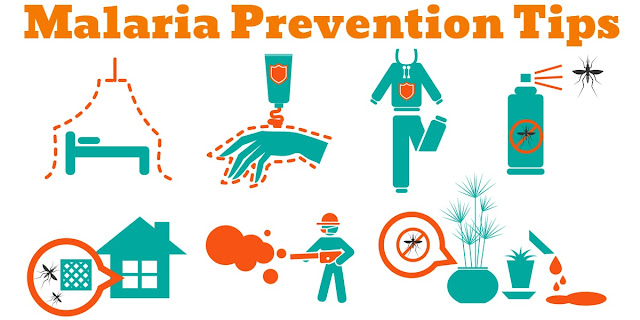Malaria - a rising global threat
Despite its small size,
the mosquito is the most dangerous animal to have caused maximum human deaths.
According to the most recent estimates from World Health Organization, about
50% of the world’s population is at risk of Malaria. In the year 2015, 215 million
cases of malaria registered of which resulted in 4,38,000 deaths.
What is Malaria?
Malaria is an infection
caused in Red Blood cells (RBCs) by a parasite called Plasmodium. Plasmodium falciparum is the most potent
parasite reported to have cause Malaria. Other less known species that cause
Malaria are Plasmodium vivax, Plasmodium ovale, Plasmodium malariae, Plasmodium
knowlesi.
Once the parasites enter
your body, they mature in the liver. These mature parasites later infect the
RBCs.
Commonly known symptoms
of Malaria are malaise, vomiting, and
fever with chills. Unavailability of
treatment can worsen the symptoms and cause anaemia, hypoglycemia and Cerebral
Malaria (obstructs supply of blood to the brain). Severe complication like cerebral Malaria can
cause coma, can hamper the learning abilities for a lifetime and even cause
death.
Who are at an increased risk?
Of the total deaths
reported in the last year, 90% solely occurred in Sub-Saharan Africa
region. People travelling to Africa are
at a higher risk for the disease.
Also, pregnant women and children
with compromised immunity are at an increased risk.
 |
| Antimalarial prophylaxis |
Diagnosis and treatment
Primary symptoms cannot
alone confirm the presence of the parasite since they are nonspecific in nature.
Early diagnosis is
crucial for a patient's quick recovery from the disease. The confirmation of
the parasite can only be done by microscopy analysis of blood sample or rapid
diagnostic test.
The most commonly
prescribed antimalarials include Chloroquine,
Quinine Sulfate,
Hydroxychloroquine, mefloquine
and a combination of Atovaquone and Proguanil.
Antimalarial prophylaxis -
the new prevention
Malarial Prophylaxis is
the preventive treatment for Malaria. While there are several oral medications
prescribed for it, pharmaceutical companies are working hard on developing
vaccines for it. Travelling to Malaria endemic countries increases the risk of
contracting the infection; therefore malarial prophylaxis becomes mandatory.
The region visited, the length
of stay, time of visit, primary protection against mosquitoes are all important
factors that influence the choice of medication for prophylaxis.
Malarial prophylaxis
causes a lot of side-effects like diarrhoea, blurred vision, nausea, and
heartburn. Some of the medication also cause adverse neurological effects such
as insomnia, mental clouding, vivid dreams, dizziness, anxiety and coordination
problems. Antimalarial
Prophylaxis is a range of preventive medication for Malaria introduced
by ANP
Pharma.
The world is walking
towards a significant progress against malaria. The global mortality rate for
malaria dropped by 60 percent since 2000 but its a long way to go. Through
continued strong global leadership and smart investments in life-saving tools and
innovations, we can put a stop to malaria.



Comments
Post a Comment